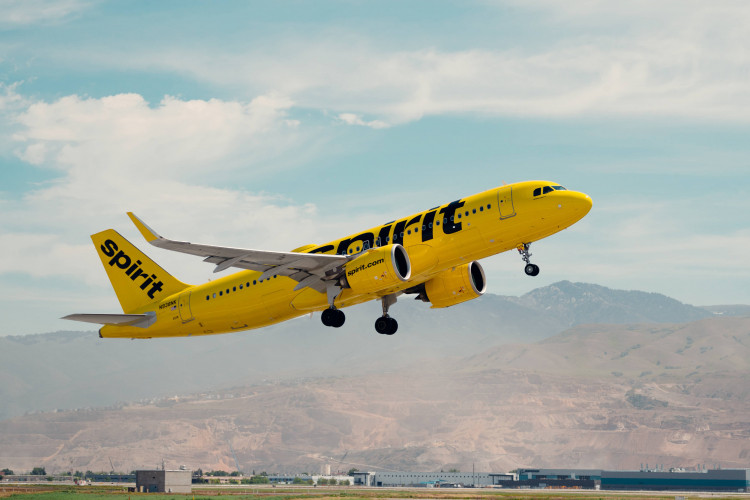Spirit Airlines is reportedly preparing to file for Chapter 11 bankruptcy protection following the collapse of its merger talks with Frontier Airlines, marking its second failed deal attempt in less than two years. The ultra-low-cost carrier, known for its budget-friendly flights, has faced mounting financial challenges, including significant debt maturities and operational losses. The anticipated bankruptcy filing, expected within weeks, comes as Spirit's stock plummeted more than 55% on Wednesday, marking one of the steepest declines in its history.
Spirit announced Tuesday that it has been engaged in discussions with bondholders to explore ways to restructure its debt and stabilize its financial position. "Constructive discussions" with holders of senior secured notes due in 2025 are ongoing, the airline said. Should an agreement be reached, it would likely lead to a legal restructuring that, according to Spirit, would not affect general creditors, employees, or customers but would result in the cancellation of the company's existing equity. If talks fail, the airline stated that it would consider alternative measures.
The company's financial troubles have worsened since the failed merger with Frontier, which was initially planned to create a stronger competitive player in the low-cost airline market. The Wall Street Journal reported that Frontier ultimately chose not to move forward, leaving Spirit in a precarious financial state. This development follows a tumultuous bidding war in 2022 between Frontier and JetBlue for Spirit, which ended with the latter outbidding Frontier. However, the JetBlue merger was later blocked by a federal judge over antitrust concerns.
"[The failed merger] leaves Spirit with few options and significant challenges ahead," said Tom Fitzgerald, an analyst at TD Cowen. Fitzgerald noted that the airline's financial pressures and the risk of customer attrition in light of bankruptcy reports could further strain liquidity. "In the event of a restructuring, focus will then shift to the fate of Spirit's fleet," Fitzgerald wrote in a note to clients, adding that the carrier may be forced to sell encumbered assets to repay debt and renegotiate lease terms for the remainder of its fleet.
As part of its efforts to cut costs, Spirit has announced plans to sell several older aircraft and furlough over 300 pilots in January. The airline also filed a notice with the Securities and Exchange Commission (SEC) outlining approximately $80 million in annualized cost reductions set for implementation next year. These cuts, Spirit said, would primarily stem from a workforce reduction commensurate with its anticipated flight volume.
The news of Spirit's financial difficulties comes at a time when the airline industry is grappling with lingering effects from the COVID-19 pandemic, economic uncertainty, and fluctuating fuel costs. While Spirit's ultra-low-cost model has long attracted budget-conscious travelers, it has also faced challenges in navigating economic downturns and market competition.
The stock market reaction to the bankruptcy reports has been swift and severe. Spirit's shares have plunged more than 90% this year, reflecting growing investor concerns about the airline's viability. Wall Street analysts have also become increasingly bearish, with zero Buy ratings, four Hold recommendations, and eight Sell ratings, according to Bloomberg data.






